Victorian country towns can’t get GPs, vital health services are closing and patients are paying
Rural Victoria is facing a medical emergency as country towns struggle to recruit doctors, health services are cut and patients are made pay for urgent care.
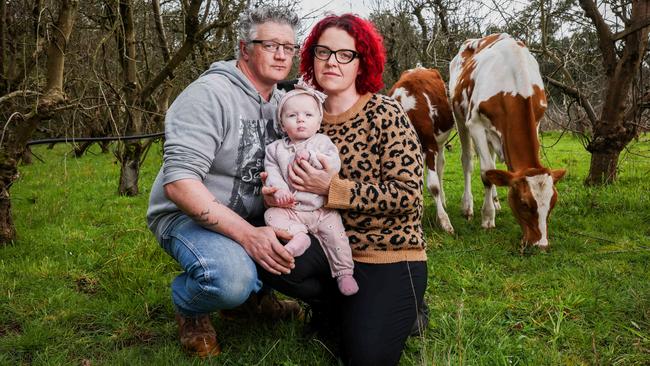
News
Don't miss out on the headlines from News. Followed categories will be added to My News.
Rural Victoria is facing a medical emergency as country towns struggle to recruit doctors, appointment waiting times blow out, hospital services are cut and overwhelmed GPs increasingly turn away new patients.
After-hours emergency and maternity services are among the worst hit, a Sunday Herald Sun investigation has found, and a woman recently gave birth by a country road as she tried to reach a hospital.
In northern Victoria’s Cohuna, GP Megan Belot – also a farmer and mum to three-year-old Mack – is “dark” about it all.
Maternity services have closed in her town, meaning women have to travel at least an hour to bigger regional hospitals to give birth. As well, the Cohuna District Hospital’s urgent care centre charges a fee of $50 or more for locals requiring emergency treatment.
Dr Belot, 37, who also works in Echuca and Kerang, said she was “praying” maternity services would be restored, and that charging for emergency treatment in the public system was “wrong, really wrong”.
As the Rural Doctors Association of Victoria’s immediate past president, she has fought to stop country hospitals charging for urgent care.
“All those things that you might rock up to an emergency department for, you’ve got to pay for, and as a doctor I don’t want to have to discuss the fee with you while you’re sitting there having chest pain. It’s just wrong,” Dr Belot said.
“The other thing that really gets me is that I see so many fit and healthy pregnant women that should be allowed to birth close to home but now can’t.”
Dr Belot said she was seeing many patients “with long lists of problems they’ve been holding on to”, some of which could have been more effectively treated had they been diagnosed earlier.
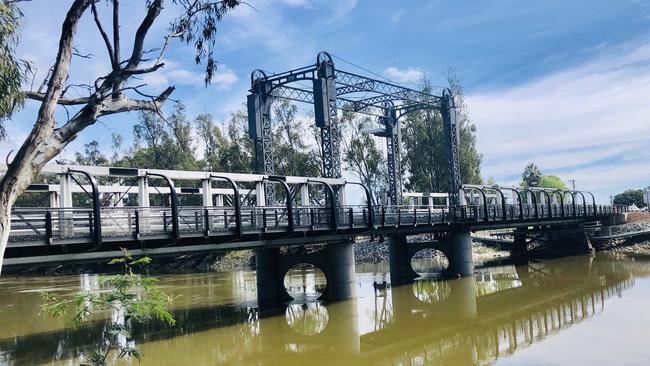
“You’ve got patients trying to see you and you just can’t meet the demand,” she said.
“As a doctor working in rural hospitals, I’m seeing patients presenting quite late.
“We’re seeing retrieval times blow out and other hospitals not wanting to take your patient because they don’t have a bed.”
Cohuna is not the only town to close its maternity services.
In April, Jessa Laws of Portland gave birth to baby Astrid on a roadside.
Husband Ben was forced to pull up the family car on a Port Fairy road as they made a mad dash to Warrnambool, following the temporary closure of the local hospital’s maternity suite.
Paramedics arrived in time to assist with the birth.
It was just “pure luck” Astrid arrived safely, given Ms Laws had experienced life-threatening complications with the birth of two other children.
“It’s really hit home how lucky we were that there were no complications,” she said.
“It really was only luck. So much could have gone wrong.
“It’s nothing to do with the paramedics, because they did an amazing job. But had there been complications, well, we were still half an hour away from the hospital, driving in the dark on bad roads with accident-causing potholes that you have to dodge around, and the risk of wildlife on the roads also.”
Medical authorities say the problem of doctors not wanting to work in rural areas – causing health services to be cut back or close – has only been worsening.
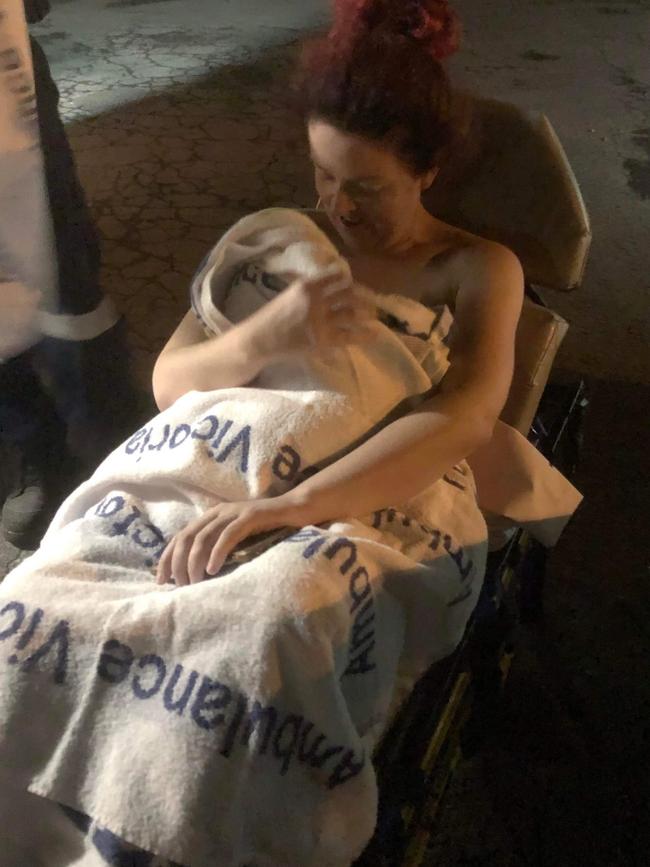
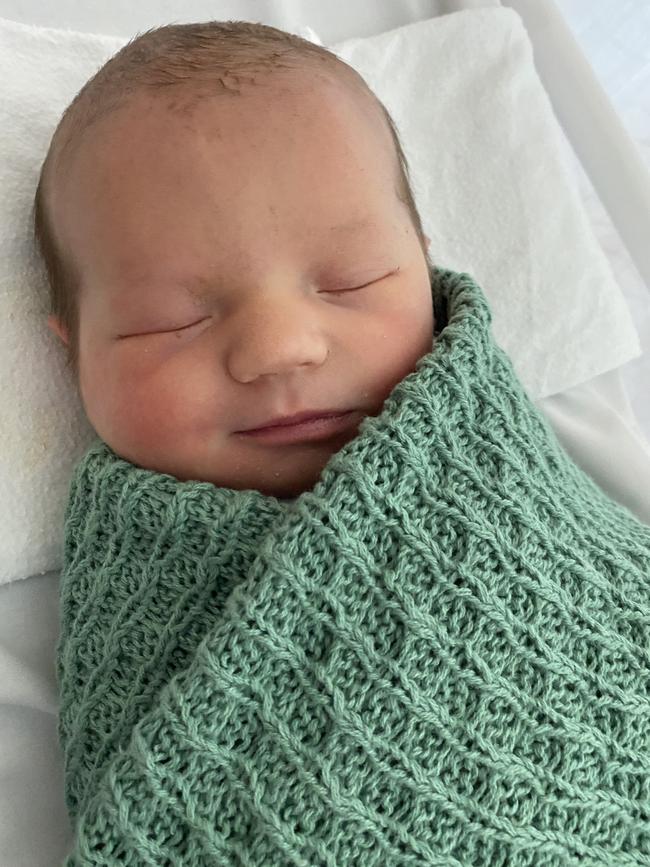
This was largely due to graduates shifting away from wanting to become GPs in favour of better-paid specialist careers, in cities.
Royal Australian College of General Practitioners Victorian chairwoman Anita Munoz said just 13 per cent of graduates nominated general practice as their preferred career paths, but GPs were urgently needed in country towns.
While “a complex problem with no simple or straightforward solution”, government incentives – including higher Medicare rebates for rural doctors, a concierge-type service smoothing their paths, and other rewards – could lure GPs to the country, she said.
Rural Doctors Association of Australia chief executive Peta Rutherford said Victoria had the worst employment landscape for doctors of any state, and many moved interstate where it was easier to work and the conditions and pay were better.
Inconsistent wages and work conditions across health districts remain significant factors. “Each Victorian district is an individually negotiated contract – there is no consistent remuneration arrangement,” Ms Rutherford said.
“The industrial arrangements in Victoria are very different from the rest of Australia and that complicates things for doctors because they think ‘well, this is just all too hard, I’ll go and work in Queensland, where I know I’m going to be well paid and with half the headaches’.”
A Sunday Herald Sun investigation found many rural health districts heavily recruiting for GPs, with salaries varying from $200,000 in some areas to $540,000 in others.
On Sunday, Premier Daniel Andrews said he was not responsible for paying GPs’ wages, instead pointing to the federal government.
“The wages of GPs, as it stands right now, are paid by the Commonwealth. They’re not paid by us,” the Premier said.
“It’s really challenging for us to try and run Medicare and the public hospital system.
“We have a federal government for a reason. We all pay our Medicare levy for a reason and frankly, that system is broken and it is not working.”
He conceded, however, there was “a structural issue” surrounding midwifery services in Victoria and the government was working to rectify it.
“In terms of obstetric services and birthing services across the board, midwifery services are delivered by midwives and that’s why it’s part of our comprehensive workforce plan,” Mr Andrews said.
“There’s a very significant investment in training and upskilling.
“You’ve got to recruit additional staff and no one’s working harder than the Victorian government, the health department and our hospitals to recruit those staff.”
A state government spokesperson said while primary health care was a federal responsibility, it had “stepped in” to establish priority primary care centres across the state to reduce pressure on emergency departments.
It was also recruiting health professionals from overseas to bolster the regional workforce.
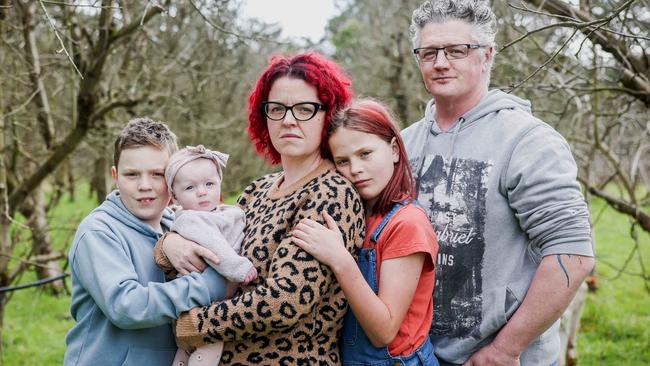
Opposition Health spokeswoman Georgie Crozier said a Liberal-Nationals state government would train doctors in new and upgraded rural hospitals in the hope many would remain in the country long-term.
It would build and upgrade hospitals in Mildura, Warragul, Wodonga, St Arnaud, Daylesford and Mansfield, Ms Crozier said.
“Importantly, many of these facilities will be tertiary hospitals, training the next generation of doctors and nurses where they’re needed most,” she said.
With Alexandra Middleton




